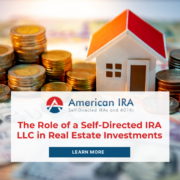Self-Directed IRA Real Estate Rules Investors Need to Know
Many investors opt for a Self-Directed IRA because they know that it can free them up for investing retirement money into real estate. This is a powerful and convenient reason for holding a Self-Directed IRA: it gives people a high degree of freedom with their retirement assets. However, freedom is not unlimited when it comes to retirement investing. There are specific rules to help protect the tax benefits of the property contained within an IRA. And if investors want to be sure that their real estate is meeting those rules, it only helps to brush up on what they are. Here are some of the most essential things real estate IRA investors need to know:
Understand Who a “Disqualified Person” Is
In a Self-Directed IRA, a disqualified person refers to you, or someone related to you, such as a spouse (or children, parents, or in-laws) that potentially stand to benefit from using your real estate. For example, you would not be able to let a sister-in-law rent from the house that your IRA owns, as this would be transacting with a disqualified person. Do not worry; this is not limited to real estate. Disqualified persons can never do business with your IRA, such as receiving a private note from your IRA. Another example is if your brother owns a window company; if you needed your real estate within the IRA to have its window fixed, this kind of transaction would be disqualified.
A good basic rule of thumb is that when you work with your real estate assets within a Self-Directed IRA, work with people you do not know intimately, or people who would not provide you with an indirect benefit if they transacted with your real estate.
Avoid “Self-Dealing”
Another term for transacting with a disqualified person is “self-dealing,” such as when the account holder does business with a disqualified person, such as buying a property directly from an account holder like a parent. Remember that if you do violate a rule like this, you can risk tax penalties, as well as the IRA itself being voided thanks to not complying with the regulations in place. In other words, you will lose the exact benefits for which you likely signed up for an IRA in the first place.
To avoid self-dealing, you can always find trusted commercial partners who do not know you at the level of a “disqualified person.”
Do not Stay in Your Own Real Estate
Having real estate within an IRA can be a powerful feeling. But remember that you own the IRA that owns the real estate. In this case, there should be a degree of separation from you and the real estate itself. That means you cannot even stay in your own real estate, even for one night. The real estate should be a completely separate property from your personal investments—and you, personally. Why? Because retirement assets, as designed by the regulations in place, should be for your long-term retirement savings benefit.
After all, the laws do allow investors to withdraw from a retirement account, but only with substantial penalties and possibly taxes, depending on the type of transaction and the account. Staying in your own IRA’s real estate property could be seen as a sort of “early withdrawal” on your retirement, which goes against the reason these accounts were created in the first place.
A Self-Directed IRA administration firm can help make sure that your paperwork is in order. Interested in learning more about Self-Directed IRAs? Contact American IRA, LLC at 866-7500-IRA (472) for a free consultation. Download our free guides or visit us online at www.AmericanIRA.com.









